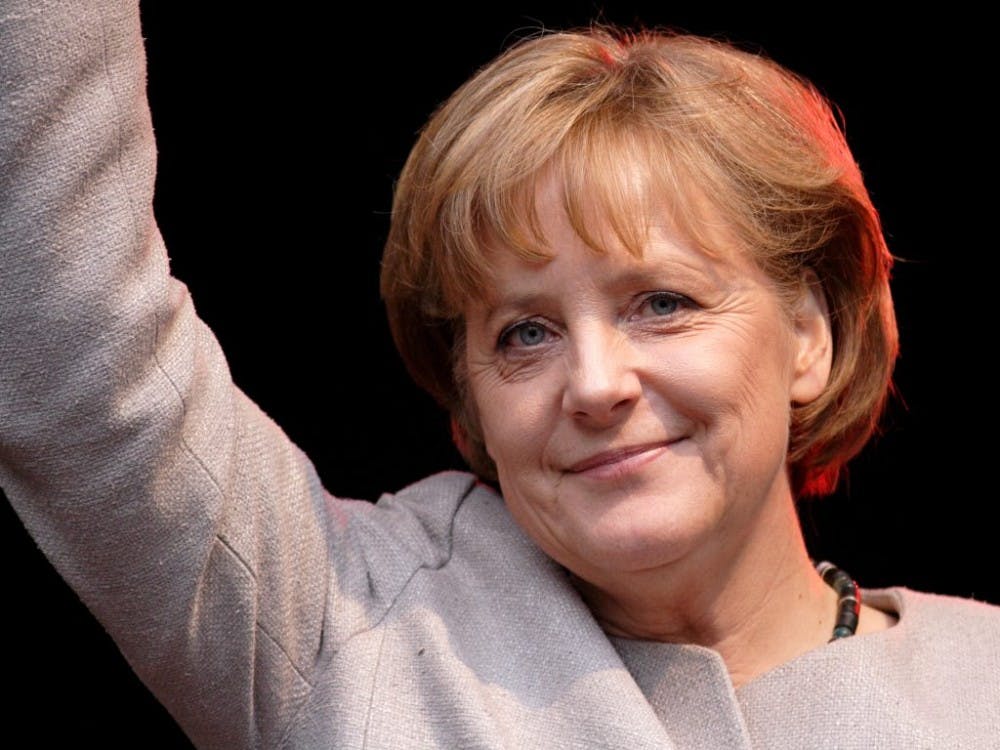Conservative populism, arguably the most concerning development of the decade, is on the rise across the Western world. Conservative populism appeals to the common man in that it rejects current political consensus and is very anti-elite. Back in 2010, the political establishment’s grip on political power seemed absolute. Today, however, fringe politicians like Marine Le Pen and Nigel Farage wield substantial influence over the electorates of France and England, respectively. It seems as though Germany is no exception.
Alternative für Deutschland(AfD), or “Alternative for Germany,” offers a package similar to what Le Pen’s Front Nationaland Farage’s United Kingdom Independence Party (UKIP) are peddling: Euroscepticism and isolationism, rejection of the traditional left/right parliamentary pettifoggery, resistance to foreign influence and immigration and the wholesale repudiation of globalization. AfD’s Trojan Trabbi of sorts will have dire consequences on the country’s influence in Europe and abroad, and thus it is imperative that the citizensof Germany reclaim their country from those who seek to destroy it from the inside.
Regardless of the many reasons why espousing such policies is problematic, the constituents of Mecklenburg-Vorpommern (Meckpomm), for instance, were undeterred in giving Angela Merkel’s Christlich Demokratische Union(CDU), Germany’s center-right political party, the proverbial middle finger. AfD’s presence waxed profoundly at the CDU-SPD (Sozialdemokratische Partei Deutschlands) Grand Coalition’s expense in the Bundesland’s recent state legislature elections.
Merkel’s deleteriously inept refugee distribution policies, claims the AfD, are almost single-handedly to blame. This comes in spite of the fact that less than three percent of refugees have thus far been resettled in Meckpomm, according to the Federal Office for Migration and Refugees. If anything, the election results proved AfD’s aptitude for erecting a façade of immediate danger, a veneer easily exploited to sow reactionary sentiment among the population. Mecklenburgers, citizens of Meckpomm, were deceived into fearing a nebulous proliferation of refugees, something that was simply not the case, with disquieting effectiveness.
One could argue, nonetheless, that Mecklenburg-Vorpommern is largely rural, underpopulated and most definitely not a viable cross section of the Federal Republic as a whole, and therefore impertinent to a national context. They would be correct in most respects. However, the danger stems not from the literal electoral situation as seen statistically; Odds are, CDU will retain a comfortable plurality in the Bundestag (the German equivalent of the House of Representatives) and the Grand Alliance will continue for the foreseeable future. The true threat can be discerned from the modification of an old aphorism: AfD will win if it does not lose. All the party must do is secure a single seat in the Bundestag to pose a threat to civil German society.
Fearmongering and violently seditious rhetoric on the part of extreme rightist politicians had successfully warped the Mecklenburgers’ perception of the migration crisis, which most likely was the leading reason behind AfD’s electoral success.
According to an SPD publication, for instance, when Frauke Petry, AfD’s leader, was asked in January how a border security officer should react to a trespassing refugee, she was quoted as saying that said officer must impede the trespasser at all costs, even to make use of their firearm as a last resort. Employing such provocative rhetoric could very well put the kibosh on rational thought on a national level, thereby forcing sane politicians to respond to and thus validate the AfD’s outlandish claims.
A consequential showing in the federal elections of even a fifth of that which occurred in MeckPomm will provide Petry with an invaluable soapbox from which to broadcast her incendiary platform and influence public policy, a circumstance that must be avoided, again, at all costs.
A reactionary Germany ensconced in its own perceived irreproachability, in any capacity, would have devastating implications both in the country and the international milieu. The adoption of isolationism in the European Union’s (EU) largest member would likely deliver a fatal blow to the EU’s integrity, which now more than ever needs to be bolstered. From a purely socioeconomic perspective, the Union’s most mutualistic aspects, the common market and the Schengen Zone, greatly benefit the German economy.
As a nation that has enjoyed a positive trade balance since the 1990s, it would make little sense for Germany to shirk the very programs that cater to her largely export-based economy. Additionally by pursuing an isolationist foreign policy, Germany would in turn sacrifice the influence she has cultivated as a fledgling great power, which is vital to protecting her national interests and security. This is true especially in light of the U.K.’s unceremonious exit from the bloc, where Germany must now assume an even greater mantle and unequivocally take the helm of a ship that may turn out to be either Noah’s Ark or the Titanic.
Howard Senior is a freshman economics and mathematics double major from Miami.





